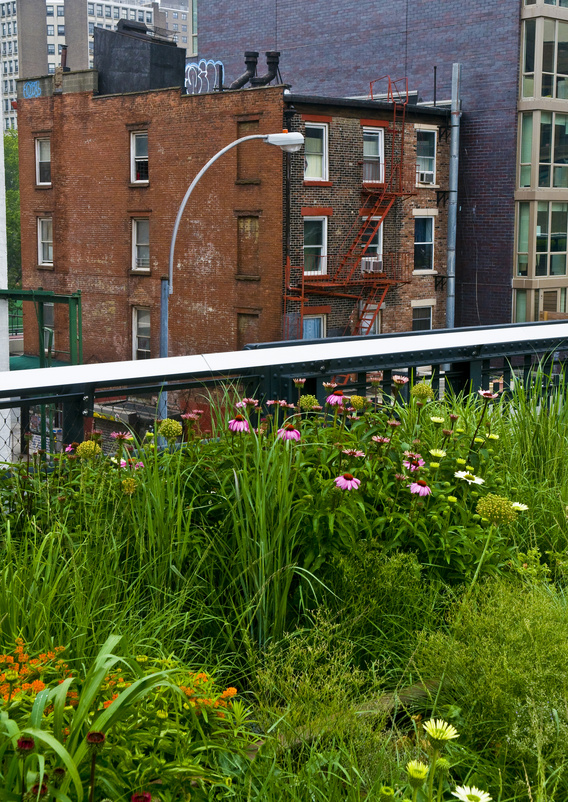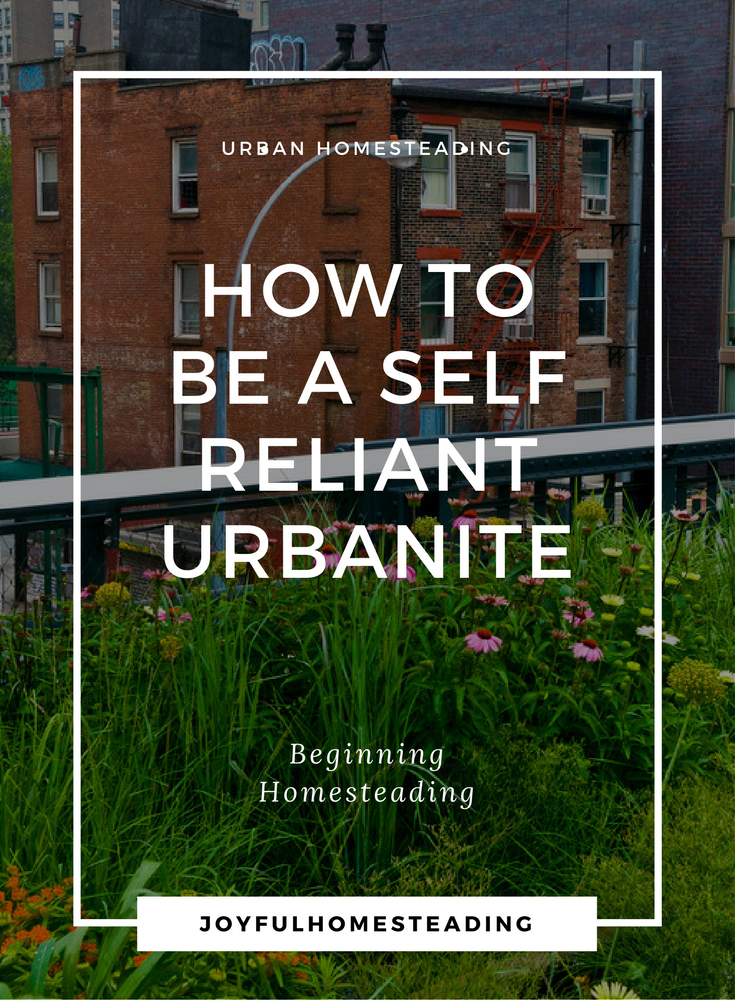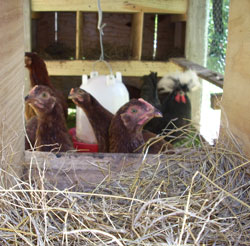Urban Homesteading
Self Reliance for City Dwellers
Urban homesteading can be tough. You want to become self-reliant, but instead of being surrounded by farmland, you're surrounded by concrete.
So what's a poor city dweller craving the rural life to do?
The good news is there are ways you can be self reliant, even when living in town.
The secret is to have a heart for homesteading, start cutting costs and save money for that day when you really will own your acreage in the country.
In the meantime, here are six ways you can live the self reliant lifestyle now:

Photo by Kobby Dagan

Urban Homesteading Tips:
1. Container Gardening
Think you really need a patch of dirt to grow vegetables? Think again. Growing vegetables like tomatoes, lettuce, squash and potatoes can be done just as easily in barrels, pots or even a burlap bag or bale of hay. Better still, container gardening is ideal for urban homesteading and those new to gardening.
You have fewer plants to deal with, less weeding and less upfront expense and time. With proper planning you can grow quite a few things in a small space, even if all you have is a balcony. Grow zucchini and strawberries from hanging baskets and keep patio tomatoes in small tubs.
2. Use a Solar Oven
Using a solar oven cuts back on electricity costs and keeps your home cool in the summer. Making use of solar power is a great way to cut down on utility costs, especially in the summer when turning on the oven puts an extra strain on your air conditioner.
As long as you start them early in the morning, solar ovens are easy to use and a boon to urban homesteading.
3. Keep a Small Handfull of Chickens
An urban homesteading friend of mine hatched chicks from fertilized eggs using an electric skillet set on low, a small cup of water to keep the air inside the skillet moist and a towel to cushion the eggs.
Three of the eggs hatched and two of the birds survived to adulthood. She now keeps these two hens in her backyard. When they are old enough these birds will supply her with eggs on a daily basis. Check the rules and regulations of your city, but most will allow city dwellers to keep up to six hens.

4. Live Simply
A good idea for anyone, but essential for urban homesteading. Learn to cut back now, and while you are at it, get rid of the extra clutter in your life. Homesteading no matter where you're at means learning to make do with what you have instead of running to the store all of the time. Do you really need those three television sets? How about that large wardrobe of clothing? Being creative with items on hand now will prepare you for the day when you live in a rural area that is far away from the discount store.
5. Buy in Bulk
Buy a good quality grain mill and then buy bulk grains to make your own healthy, fresh and low-cost breads and pastas. It's a great way to stay away from the grocery store, where you are likely to make impulsive, extra purchases of items you do not really need.
Buy a grain mill and then go online to order storable foods and a sufficient amount of wheat and other grains to last you a year. A good, low-cost place is here. Better yet, find a local coop that sells organic grains in bulk and save on shipping costs. Store that grain in the closet you just emptied of all those extra clothing you never wear anyway.
6. Make it Yourself
I make my own homemade laundry soap all the time. All I do is grate up a bar of soap, put in a half-gallon jar and then add a cup of washing soda and a cup of Borax. Simple. It's not fancy, but it gets the job done. Instead of buying processed food, make things from scratch. Look for simpler ways of doing things without spending a lot of money. That's homesteading at its finest.
Follow these tips, start saving a little each month, and you'll be moving to the acreage of your dreams in no time.
Are You an Urban Homesteader?
Are you keeping a small flock of hens in your backyard? Growing a garden on your balcony? Canning tomatoes you found at the farmer's market? Proudly share it with other readers at Joyful Homesteading!
What Other Visitors Have Said
Click below to see contributions from other visitors to this page...
best reasons fo rabbits
-Reasons why Meat rabbits are a homsteaders friend-
10. Learning to tan their luxurious furs can bring in income, be used to make clothes, or homemade …
Purchasing Vacant city lots to homestead in
Me and my family purchased two vacant lots from the county a few years ago. We have spent lots of time clearing and fencing in with pallets. We are also …
Medium city small lot
I have seven dwarf fruit trees and a vegetable garden. I also grow edibles in with my flowers. I have an herb garden and raise honey bees.
berries
I like berries, but they don't often have blackberries in the market, and I picked commercials once or twice and know what goes on them, so I don't buy …
Alley Gardens
I live in a 3rd-floor apartment on a main street in a small town in Pennsylvania. I do not have a yard or any outdoor space so a few years ago, I let a …
Container Gardening Could be Crucial
Under communism, Ukraine and Romania were forced into high density apartments down town.
My late husband and I were in Romania about 1996 as they were …
My Edible Yard Urban Homestead
My name is Ara and I live in south Florida on less than 1/5th acre. We've had an organic backyard garden on and off for years, but in the last couple years …
Little House Without the Praire
Hi, I am Heather...an Urban homesteader in northern Illinois.
My husband and I work hard to have our little homestead in the city...it is a work in …
Urban Homestead South Africa
We have a small plot which is mostly house but we have managed to grow our own food - from corn and potatoes to herbs and lettuce, even fruits like strawberries …
Urban homesteading - container gardening
I have a container garden, tomatoes, carrots, salad greens, onions, cucumbers, green beans and kale.
I have tried for years to make a success of my …
Progressing with my suburban homestead
I am progressing with my suburban homestead by raising a portion of my vegetables, a lot of fruit and 10 laying chickens near Baton Rouge, La. I wish my …
Return from Urban Homesteading to the Home Page





New! Comments
Have your say about what you just read! Leave me a comment in the box below.